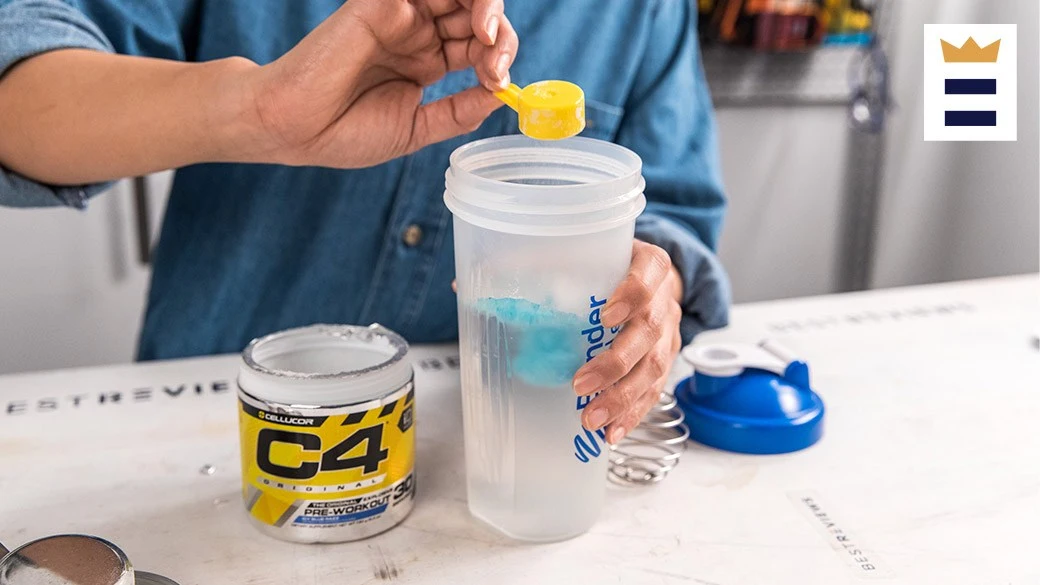
The Powder Is Meant To Be Diluted
Dry scooping essentially just means consuming the dry scoop of the powder without first dissolving it in a liquid. This is similar to the “cinnamon challenge” or earlier days of the internet. While this trend is quite unpleasant, it can also be very dangerous.
Consuming the dry powder can cause accidental inhalation and also choking. However, dry scooping some of these ingredients can also be quite dangerous. Ingesting caffeine that has not been diluted can cause increased heart rates, chest pain, dizziness, and if not treated in a timely manner, caffein toxicity, which itself can be fatal.
In addition to these concerning reasons, since a lot of pre-workout products are not regulated, they could contain other problematic ingredients that may not even be listed on the label. There’s a good reason why the products are meant to be diluted with liquid and consumed as instructed on the package.
Dry scooping became popular due to the fact that someone on the social media platform claimed that it is a faster way for the pre-workout to be absorbed, but sports medicine physician Dr. Benedict Ifedi said that while potentially true, this is not necessarily a good thing.
A study in the Canadian Study of Adolescent Health Behaviors said: “To date […] there have been no epidemiological studies investigating the occurrence of dry scooping among young people, leaving significant information unknown,” according to lead author Kyle T. Ganson from the University of Toronto.
About 16.9% of the surveyed young people admitted to trying dry scooping in the previous 12 months. About 21.8% were male, 14.2% were female, and 8% were transgender/gender non-conforming.
Ganson also said: “Our data shows that novel dietary phenomena that become popularized on social media and within gym culture can lead to a greater likelihood of engagement.”
He continued: “We need health care and mental health care providers to be knowledgeable of these unique dietary practices aimed at increasing performance and musculature, such as dry scooping.”

Dry Scooping Is Actually Quite Dangerous










